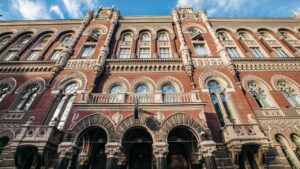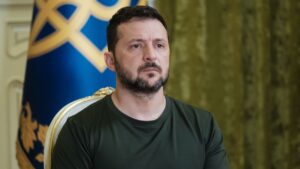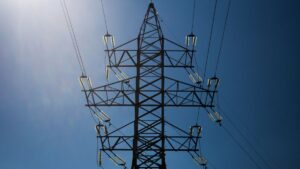
The National Bank of Ukraine (NBU) on August 11 announced its intention to conclude a contract with IC “VUSO” (Kiev) for medical insurance of employees, according to the electronic procurement system Prozorro. At the expected cost of purchasing the service of UAH 106.912 mln, the company’s price offer amounted to UAH 100.392 mln.
The tender was also attended by IC “Kraina” – UAH 98.896 mln. The offer of which was rejected because the participant of the procurement procedure indicated in the tender offer unreliable information, which is essential for determining the results of open bidding, which was revealed by the customer.
In addition, the participants of the tender were IC Universalna – UAH 100.450 mln, INGO – UAH 100.480 mln.
As reported, the winner of the tender for VHI of NBU employees in 2023 and 2024 was IC “Universalna”, in 2020 – IC “Kraina”.
IC “VUSO” was founded in 2001. It is a member of MTSBU and NASU, a participant of the agreement on direct settlement of losses and a member of the Nuclear Insurance Pool.
As it was informed, JSC “Oschadbank” on July 29, 2025 announced its intention to conclude with IC “VUSO” the contract of voluntary medical insurance of employees. The offer of the company, the only participant of the tender amounted to UAH 134,285 mln against UAH 134,3 mln expected cost.

Ukrainian President Volodymyr Zelensky held talks with Turkish President Recep Tayyip Erdogan, during which the parties discussed the current diplomatic situation and the opportunities it opens up.
“President Erdogan confirmed his country’s readiness to organize a summit between the leaders of Ukraine, the US, Russia, and Turkey,” Zelensky wrote on Telegram on Tuesday.
According to him, Erdogan said that any negotiations without Ukraine would not bring stable peace.
“We all understand the risks and threats equally. A fake, rather than honest, peace will certainly not last long and will encourage Russia to seize even more territory. I noted that we are ready for any format of meeting in order to stop the killings and end the war,” the Ukrainian president added.
The parties also discussed high-level events that Ukraine is preparing during the UN General Assembly and Turkey’s participation in them.
According to the Turkish Presidency’s Twitter page, during the conversation, which took place at the request of the Ukrainian side, bilateral relations between Turkey and Ukraine, as well as regional and global issues, were discussed.
“Recognizing the valuable progress achieved in direct talks in Istanbul between Ukraine and Russia, President Erdogan expressed his hope that the next rounds of talks would yield meaningful results for a ceasefire on the path to lasting peace. Noting that Turkey is ready to host a summit at the leadership level, President Erdogan expressed his conviction that the establishment of working groups in the military, humanitarian, and political spheres will pave the way for the summit,” the statement said.
Erdogan also stressed that Turkey continues to support Ukraine’s sovereignty and territorial integrity.
As reported, last Friday, US President Donald Trump announced that his meeting with Vladimir Putin would take place on August 15 in Alaska.

Investment and development company GORO Development, part of the OKKO group of companies, has sold more than 50% of the rooms in its first hotel project at the GORO Mountain Resort near Slavske in the Lviv region, the project’s press service told Interfax-Ukraine.
It is specified that 103 of the 197 rooms of the first hotel of the ONDE Hotel complex, investment in which was launched in March 2025, have been sold. The ONDE complex will consist of three hotels with a total of 429 rooms, with construction completion and launch scheduled for summer 2028.
GORO Development is implementing an international business model called “resort hotel rooms as investment.” Private investors purchase individual rooms with unified professional management, the possibility of asset capitalization growth, and profits from the hotel’s operating activities, according to the press release.
“We have investors from a wide range of sectors: IT, agriculture, manufacturing, finance, and real estate. Over 90% of our investors are entering the project with a view to long-term participation, i.e., they plan to remain in it after construction is completed in order to receive a stable income from the hotel’s operations,” said GORO Development CEO Volodymyr Garazd, as quoted in the press release.
The company specified that as of early August 2025, more than 50 private investors had chosen the project: a quarter of them are representatives of the IT and communications sector, 10% are investors from agriculture, real estate, and construction, the financial sector, 6.7% are from defense tech and manufacturing, 5% are from the energy and automotive industries, 4% are from law, and 3.3% are from retail, education, and logistics.
In terms of geographical origin, Kyiv and Lviv lead the way (33.3% each), followed by Dnipro (5.6%), Zhytomyr and Vinnytsia (3.7% each). There is also active interest in the project from Ukrainians living abroad.
In the first four months after the start of sales, the cost of rooms at GORO Mountain Resort increased by 5.7%, which corresponds to an annual rate of 17.1%. At the initial stage, one-room apartments and rooms with a separate bedroom were in the highest demand. These formats accounted for the majority of sales, resulting in a 14% increase in their price, which is 2.5 times higher than the average increase for the complex. At the current stage, demand is beginning to shift towards larger formats such as executive suites.
According to GORO Development’s analytics, the expected return on investment for the entire implementation period may exceed 57%, with a projected average return on a hotel room after the complex is launched at 10% per annum.
OKKO Group began construction of the large-scale GORO Mountain Resort recreation project in October 2024.
The total area of the GORO Mountain Resort project is almost 1,200 hectares.
In the first phase, covering an area of 127 hectares, nine hotels with 1,100 rooms will be built with a developed recreational infrastructure: spa areas, swimming pools, restaurants, children’s and business spaces. The total investment in the first phase of the hotels is $235 million. Construction is currently underway on the first ONDE complex, each of whose three hotels will have its own theme and functional content: entertainment, business, and relaxation.
Additional infrastructure includes 309 parking spaces, a hotel for animals, a fitness and yoga center, boutiques, a beauty salon, a barbershop, and restaurants serving national cuisines from around the world.
The first phase also includes the construction of 10 ski slopes with a total length of 13 km and 50 hectares of snowmaking facilities, the installation of the longest gondola lift (2.8 km) and two modern chairlifts with a length of 1.5 km.
The resort’s hotel real estate is being developed and investments are being attracted by the investment and development company GORO Development, founded in 2021. It is responsible for the development of architectural concepts, construction, functional and recreational content, as well as attracting investments in the hotel business.
OKKO Group is the sole owner, main investor, master developer, builder, and operator of GORO Mountain Resort to ensure the harmonious development and comprehensive concept of the all-season recreational project. To create an international format, OKKO Group has brought in world-class Austrian experts: PKF Hospitality (investment analysis and concept), ILF Group (master plan and ski infrastructure), and Doppelmayr/Garaventa Gruppe (design of the lift and cable car system).

Distribution system operators (DSOs, Oblenergo) cleared over 21,000 km of overhead power lines (OPL) of all voltage classes in the first half of the year, including 9,500 km in April-June, according to the State Energy Inspection of Ukraine (Derzhzhergonadzor) on Tuesday.
According to the inspection, in addition to the planned volumes, almost 3,000 km were also cleared as a result of unscheduled inspections of power lines and after the activation of protective automation, another 544 km were cleared to eliminate emergency situations caused by adverse weather conditions, and more than 238 km were cleared at the request of Derzhenergonadzor following the consideration of consumer complaints.
“Clearing power lines is an important and necessary preventive measure that contributes to the reliable operation of power grids and minimizes the risk of technological disruptions,” the agency said.
The inspection explained that maintaining the proper technical condition of power lines reduces the time and resources required for their maintenance and repair, as well as ensuring faster restoration of power supply in case of emergencies.
Representatives of the territorial bodies of the State Energy Supervision Service monitored the completeness and quality of scheduled work on clearing 0.4-110 (150) kV power line routes and bringing them into compliance with the requirements of the rules and regulations in the electric power industry, carried out by 27 OSRs in the first half of 2025.
Work on clearing the OSR is carried out annually in accordance with a schedule agreed with the State Energy Inspection and approved by the Ministry of Energy of Ukraine.

Insurance company Forte Life (Kyiv) collected UAH 24.165 million in net premiums in January-June 2025, which is 9.96% more than in the same period of 2024.
According to the company’s report in the NSSMC’s information disclosure system, in the first half of the year, the company paid out UAH 8.516 million, which is 24.8% more than in the same period a year earlier.
Administrative expenses amounted to UAH 1.427 million (+3.7%), other expenses amounted to UAH 1.515 million (3.6 times more).
The financial result before taxation amounted to UAH 8.970 million (2.5 times more), and net profit increased 2.7 times to UAH 7.140 million.
Forte Life Insurance Company (formerly Insurance Union of Life) was registered in 2005 and specializes in providing life insurance services.
According to the National Securities and Stock Market Commission, Oksana Kuleshina owns 99.8% of the insurer’s shares.

The National Antarctic Scientific Center (NASC) and the Mexican Antarctic Research Agency (AMEA) signed a memorandum on scientific cooperation in Antarctica in Mexico City on Monday, August 11. signed a memorandum on scientific cooperation in Antarctica in Mexico City, which provides for joint Ukrainian-Mexican research aboard the icebreaker Noosfera and at the Akademik Vernadsky station, according to the NANC.
NASU President Yevhen Dykyi noted that it is strategically important to study the Antarctic ecosystem in the context of climate change and to involve more countries in this effort.
“Antarctica is a unique global laboratory where scientists from any country can work together across national borders on global science and study processes that affect not only Antarctica but the entire planet… It is a great honor and pleasure for us to become a bridge to Antarctica for those countries that are just beginning their journey there, and we look forward to welcoming our Mexican colleagues to the Vernadsky station and aboard the Noosfera,” he said.
AMEA President Patricia Valdespino emphasized that cooperation with Ukraine is a “happy opportunity” for Mexico.
“It is a happy occasion that the National Autonomous University of Mexico (UNAM), in particular the Institute of Marine Sciences and Limnology (ICMyL), the National School of Earth Sciences, and tomorrow the Faculty of Natural Sciences, are involved in the launch of this project, its successful implementation, and the exchange of information with Mexicans. We are committed to actively participating in decisions that improve our relationship with the planet through science, technology, and sustainable development,” she said.
It is noted that, in addition to scientific interest, “Antarctic diplomacy” is of great importance for Ukraine, as it is becoming an increasingly important instrument of “soft power” and strengthening our country’s position in the Global South, in particular through the expansion of bilateral cooperation with Latin American countries.